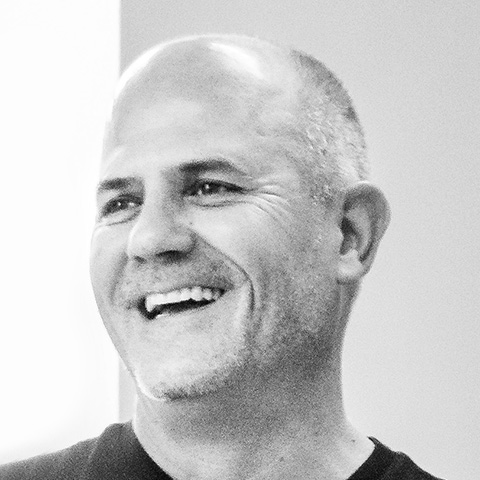Toronto would like to be seen as the nice person’s Silicon Valley, if that’s not too much trouble
It is a frigid February day when I visit Communitech, a bustling tech hub that occupies a renovated 19th--century tannery in the city of Kitchener, Ontario. Inside the brick-and-beam space, Harleen Kaur opens her phone and pulls up her latest creation—an attempt to tackle the problem of misinformation. It’s an app called Ground News, a combination news aggregator and social-media platform that combats falsehoods with the help of AI and on-the-ground verification carried out by its users.
Tapping on the headline “Buttigieg slams Trump: My marriage never involved sending ‘hush money to a porn star,’” I learn that over the previous two days the story had been covered by 14 outlets, with a collective “lean left” bias, according to the app. Had I been at the town hall meeting where Pete Buttigieg, then a presidential candidate, made this remark, I could have created my own story about it using the app’s Citizen Journalism feature (the part intended as a check on fake news), which other users would then have been able to contest or confirm.

Kaur, an aerospace engineer turned serial tech entrepreneur, was living in the US when the idea for Ground News hit her like Newton’s apple. Though motivated by a growing problem in America—this was 2016—she decided to return home to Canada to build the new company. Venture capital and other investment flows fast and free south of the border, she says, but it was more important to embark on the next phase of her career where “Canadian values” reign.
“Canada is more measured, more considerate. Our value system is not just making money and being successful,” says Kaur, who moved as a girl from India to Brampton, an immigrant enclave in the suburbs of Toronto. “Canadians are nice to each other. I think being nice matters. Nice has value.”
Kaur is not the only one drawn away from the US by Canadian benevolence. In recent years the country has become a magnet for technology talent, reeling Canadians back home and diverting the stream of overseas applicants away from Silicon Valley to Montreal, Vancouver, and the Toronto-Kitchener-Waterloo corridor. These are areas long known for incubating and exporting innovation—from Research in Motion, the company founded above a Waterloo bagel shop that ushered in the smartphone age and later took the name of its flagship product, the BlackBerry, to the neural networks of Geoffrey Hinton, the University of Toronto professor whose AI company was acquired by Google in 2013. Canadian media have christened the region “Silicon Valley North.”
Some are drawn by the image of Canada as a liberal utopia, where diversity, inclusion, and humility triumph over greed and bigotry. While this branding may have been carried to excess by Prime Minister Justin Trudeau, the allure is real.

As President Donald Trump tightens the US border—in April he placed a 60-day ban on most green cards, ostensibly to protect American jobs as covid-19 tanked the economy—Trudeau opens Canada’s arms ever wider. In 2018, he pledged to admit an additional 40,000 immigrants over the next three years, raising the quota to 350,000 by 2021, and covid hasn’t changed that policy: “Immigration will absolutely be key to our success and our economic recovery,” Canada’s immigration minister, Marco Mendicino, said in May.
While US immigration policy has been tough on many industries, the issue is especially acute in the tech sector, which relies on highly skilled foreign workers on both sides of the border. In the US, approvals for H-1B visas, the kind typically given to skilled tech workers, dropped from 94% of applications in 2015 to 76% in 2019—one study found that they dropped below 70% at 12 US tech firms—while the wait time went from five months to nearly 10. The number of H-1B applicants, after rising for years, declined after Trump was elected, from 236,000 in 2016 to 199,000 in 2017. The equivalent Canadian visa program, meanwhile, approves 95% of applications in two weeks or less.
As a result, Toronto added more new tech jobs between 2013 and 2018 than any other North American market surveyed. It is now ranked behind only San Francisco and Seattle for tech talent by the real estate giant CBRE. Invest in Canada, a federal agency charged with attracting global firms to set up shop, advertises Toronto as having the “highest concentration of AI startups in the world.” The government has gone so far as to pay for billboards in Silicon Valley that read “H-1B Problems? Pivot to Canada,” with a link to the nation’s immigration website.
Kaur thinks this “niceness” also boosts her bottom line. “Having ‘Brand Canada’ associated with us is a benefit,” she says. “We have a halo effect around us of being trusted and neutral.”

Yung Wu is the CEO of the MaRS Discovery District, a block-size campus in downtown Toronto where firms can rent space, mingle in a massive central atrium, and tap into services designed to help startups and “scale-ups” grow. He has seen the revenue of its 1,500 companies almost triple in the past two years, but he insists that Canadian tech is on a qualitatively different path from its US counterpart. “I don’t think the bro culture would have really developed in the same way over here, for instance,” he says. Canadian values may play a role in that, but demographic differences are also part of the equation—Toronto is considered one of the most diverse cities on earth, and more than 50% of its residents were born in another country. Likewise, at MaRS, which bills itself as the “largest urban innovation hub” in North America, more than half of all company founders were born abroad.
Canada has its own techno--mythology. Instead of tech bros, it has a workforce portrayed as diverse, reserved, and polite. Where Silicon Valley prizes trend-setting consumer products, Toronto’s startups tend to be more focused on services and products for business and government clients that are less likely to capture the public imagination. Where California produces “unicorns,” private tech companies valued at a billion dollars or more, Canadian techies speak of building “narwhals”—named for the small, reclusive whales, with long tusks sprouting from their heads, that roam Arctic waters.
The US produces far more unicorns per capita than Canada produces narwhals. But, Wu says, the comparison goes beyond their financial valuation. “In the Valley you find this chase for imaginary animals. The narwhal is actually a real thing,” he says. “It’s not propped up by private valuations that are intended to raise the round on the last private valuation, with no resemblance necessarily to a real company that serves real customers with real revenue. A narwhal is rare, but it’s not an imaginary thing.”
The question is whether Canada’s quiet narwhals can make a big enough splash to change the trajectory of the global tech industry.
“A colonizing experiment”
Canadians are notoriously polite and generally go out of their way to not criticize their southern neighbors. Despite this, there is a burning nationalism deep down that can take the form of disgust toward many aspects of American culture—such as an excess of individualism and self-important verbiage expressed at a high volume. And sometimes that disgust erupts like projectile vomit. This was the case when Sidewalk Labs came to town.
In March 2017, Waterfront Toronto, a government agency charged with redeveloping a 2,000-acre (800-hectare) strip of former industrial land along the shores of Lake Ontario, asked for proposals to build a smart-city district on a 12-acre parcel known as Quayside. Trudeau presided over a lavish ceremony that October to announce the winner: Sidewalk Labs, a New York–based urban innovation company owned by Alphabet, Google’s parent. Sidewalk had been chosen over the Canadian companies that had applied, but the premier of Ontario, the mayor of Toronto, and Alphabet’s then chairman, Eric Schmidt, spoke glowingly of the plan to build a neighborhood “from the internet up.”
Soon there was talk of expanding the development to the Port Lands, 800 acres of derelict industrial property adjacent to Quayside. It was arguably the most ambitious smart-city initiative in the world, including plans to use sensors and monitoring to create a vast amount of data that could be used to serve the needs of households and workplaces, aid with transportation, and even charge citizens by the item for their trash. The idea was to develop the digital architecture for an urban operating system that could then be exported globally, extending Alphabet’s market dominance from cyberspace to public space. It would be a crowning achievement not just for Sidewalk, but for Alphabet and the Canadian government.
Some Canadian-bred technologists, however, were less than impressed. Jim Balsillie, the billionaire who had been co-CEO of Research in Motion until 2012, launched an ad hoc campaign to quash the project.
Quayside “is not a smart city,” he wrote in an op-ed. “It is a colonizing experiment in surveillance capitalism.” In Balsillie’s view, the network of sensors proposed for Quayside—which Sidewalk Labs said were necessary to run robotic trash collection, high--efficiency utility systems, and other digital improvements—amounted to an Orwellian power play, feeding Canadians’ private information (location, purchasing habits, and so on) into Google’s data-hungry maw.
“THE OPPOSITE OF FACEBOOK”: HOW CANADA THINKS ABOUT TECHNOLOGY

HARLEEN KAUR
Ground News
“Our value system is not just making money and being successful. Canadians are nice to each other. I think being nice has value.”

YUNG WU
MaRs
“I don’t think the bro culture would have really developed in the same way over here.”

JOHN RUFFOLO
ArcTern Ventures
“Monopoly power over data … This is something that we need to defend ourselves against.”

KURTIS MCBRIDE
Miovision
“That’s the thing that Canada could bring to the world—replacing the data monopolies with a data collective.”

IAIN KLUGMAN
Communitech
“There is a different social contract in this country. We’re collaborators. That’s our secret weapon.”
Data sovereignty—the idea that a nation’s data should be held on servers within its borders, governed by its laws and thus ultimately by its values—has gained traction around the world. The EU’s General Data Protection Regulation (GDPR), which went into effect in 2018, is based largely on this principle, prying control of the information collected on its citizens out of the hands of the tech giants and the American laws that govern them. Balsillie urged Canadian lawmakers to follow suit. “Facebook and Google are companies built exclusively on the principle of mass surveillance,” he told the Canadian parliament at a 2018 hearing on the Cambridge Analytica scandal, where he sparred with a Google executive who had also been called to testify. “History offers sobering lessons about societies that practice mass surveillance.”
A deluge of negative headlines dogged Sidewalk Labs throughout its first year. City councilors and members of parliament began speaking out against the project. As the scope of the company’s plans for data collection became clear, the former privacy commissioner of Ontario, who had been retained by Sidewalk Labs as a consultant, resigned. “I wanted this to become a smart city of privacy—not a smart city of surveillance,” she said.
In October 2019, Waterfront Toronto unveiled a revised agreement with Sidewalk Labs that put the company on a much shorter leash. The scope was limited to the original 12 acres, not the coveted 800, and data collection would remain under the control of the government, not the company. Then, in May of this year, Sidewalk Labs announced it was pulling out. The company cited the pandemic economy as the reason for the decision, while detractors framed it as a convenient excuse for Sidewalk to slither away without losing face. “This is a major victory for the responsible citizens who fought to protect Canada’s democracy, civil and digital rights,” Balsillie told the Associated Press.
Balsillie declined to be interviewed for this article, but John Ruffolo, a prominent venture capitalist in Toronto who is a longtime ally of his, told me it had been a struggle “to smack into people’s heads in the government” the dangers of Facebook’s and Google’s “monopoly power over data.”
But he believes Canada’s tech industry activists now have lawmakers’ attention: “If you think you’re going to get control over public infrastructure where I, as a private citizen, might be subject to facial recognition walking on a public sidewalk or some other intrusion of my privacy—this is something that we need to defend ourselves against, because we will slip into tyranny, just like where I think China is today.”
“Founded by deviants”
Communitech, the Kitchener tech hub, is ground zero of the country’s tech scene. Founded in 1997, it has grown into something of a national legend, a place where tiny startups rub elbows with Google executives—the Silicon Valley giant has hosted a startup incubator in the building since 2013.
In the 1980s, the twin cities of Kitchener and Waterloo, not far from Detroit, were considered part of Canada’s Rust Belt, a region littered with shuttered factories lost to the vagaries of globalization. One bright spot was the University of Waterloo, where the computer engineering program was growing in renown. That’s where a Greek-Turkish student named Mike Lazaridis was studying before he dropped out in 1984 to start Research in Motion.
Improbably, a handful of other successful technology businesses emerged in the area, including OpenText—which makes information management software for large companies—and, more recently, the messaging app Kik. The founders of these firms created Communitech out of necessity: far from other concentrations of capital and innovation (Toronto was not the financial center that it is today), they relied on each other for support. It was a radically different genesis from that of Silicon Valley, with its cutthroat culture and its roots in the military--industrial complex rather than working-class immigrant communities. Essentially a membership organization, Communitech has seen its original list of 23 companies grow to more than 1,400 and has spawned a national network of 29 hubs operating on the same model. With hundreds of new technology firms appearing each year, Waterloo boasts the highest startup density on the planet after Silicon Valley.
Iain Klugman, the CEO of Communitech, says it’s time for the area to discard the “Silicon Valley North” label and assert a uniquely Canadian identity. “The Valley was founded by deviants—we call them libertarians now—who didn’t have respect for regulations,” he says. “That’s why they dream up ideas like Uber and Airbnb. There is a different social contract in this country. We’re collaborators. That’s our secret weapon.”
Klugman, a compact man with decidedly non--Canadian intensity (ironically, this champion of north-of-the--border values is originally from Colorado), delivers this sermon as he leads me past a banner advertising a $1 million prize for the company with the most promising AI solution to fake news. We go into a conference room, where he lays out his vision for how Canada’s brand of tech will quietly take over the world.
After years of sky-high public approval for the industry, the so-called “techlash” provides an opening, Klugman believes, for “collaborative capitalism” to take root. Even if it is opportunistic boosterism, the notion that Canada offers an alternative to “move fast and break things” (“Maybe it’s time to slow down and fix things,” he says) feels timely as the world ponders alternative futures.
But even though Canada wants to capitalize on its non-Valley identity, what exactly is the alternative on offer? “Being the opposite of Facebook, basically,” Klugman says. “It’s not just can you build it, but should you build it? And being responsible for the implications.”
That’s easy to say—but of course Google, Facebook, and the rest all started with noble, collaborative visions of their own. What starry-eyed Silicon Valley entrepreneur didn’t speak the same way in 1995, or 2000, or 2005? Perhaps Canada’s lack of success has made it easier to stay aloof: while America’s techno--optimists have had ample opportunity to sell their souls to the devil as their share prices soared to dizzying heights, few of their Canadian counterparts have had so far to fall. And angelic reputation aside, Canadians are not immune to ethical lapses: in fact, some of the most-hyped narwhals have had their share of controversy. In the 2000s, Research in Motion was embroiled in a stock options scandal. Kik’s messaging app boasted 300 million users when the company abruptly shut it down last year amid a financial scandal and complaints that it enabled pedophiles to stalk its predominantly teenage users. There is little to suggest that a small Canadian tech company wouldn’t turn into a monopolistic beast if it grew big enough.
“They have to go somewhere”
Still, that optimistic and antagonistic position is proving a magnet for talent. Canadians have complained of a brain drain for decades—the best software engineers, actors, and comedians always seem to go south—but every tech executive I spoke to proudly reported that the flow, at least in their industry, has reversed. Between 2013 and 2018, Toronto alone saw a net gain of nearly 58,000 tech workers, more than any other North American city surveyed. While San Francisco and Seattle continued to add technology jobs during that time frame, many other American hubs were losing them, including New York (9,000 net jobs lost), Raleigh-Durham (10,000), and Boston (34,000).
Sometimes this flow is very clear and deliberate. For example, H-1B visa holders who have been furloughed or laid off—as many American tech workers have been in recent months—have 60 days to leave the US.
“Those people have to go somewhere,” says Irfhan Rawji, the CEO of MobSquad, a Calgary company he founded in 2018 to siphon such workers to Canada.
MobSquad hires H-1B holders who were unable to renew their visas, sets them up with a Canadian equivalent, gives each one a desk in its Calgary coworking space, and contracts them back to their original US employers as virtual workers. The MobSquad website, as a solution to America’s “software engineering talent crisis,” advertises Canadian visas within four weeks and citizenship within four years. Rawji says he had more than 30,000 applicants in the first 18 months, and now “we are busier than we’ve ever been.”

Meanwhile, the Canadian government has made jabs at the Valley’s business model, including a new law that requires internet platforms to track and publish the identity of anyone buying politically oriented advertising. (Google, claiming the regulation was too onerous, opted not to run election ads as a result.)
In 2019, the Trudeau government unveiled a 10 Commandments–style “digital charter,” which proclaims Canadians’ right to control their data. The government has not, however, enacted legislation to give teeth to those proclamations, à la the EU’s GDPR. But as a country of 36 million with a GDP far smaller than California’s, Canada could hardly be expected to lead on regulatory reform. Perhaps if it has a role to play in reining in the industry’s excesses, it may be through exerting soft power—leading by example.
Ana Serrano, a member of the anti–Sidewalk Labs coalition Block Sidewalk, thinks Canada’s alternative vision—not what it is against, but viable business models that show what it is for—is still in its fetal stage.
“I think there’s a real opportunity for Canada to lead this next evolution of technology,” she says. “There’s so many unanswered questions to define a decidedly Canadian way, but whatever that is, it needs to come from a sense of generosity, of understanding the challenges that people are having today, and their need to lead meaningful lives.”
One person working on what a “decidedly Canadian way” might look like, at least for smart cities, is Kurtis McBride, CEO of Miovision, which specializes in high-tech traffic management.
McBride had been part of a group advising Waterfront Toronto on the Quayside project; he’s also the board chair of the Open City Network, which, pre-pandemic, was developing standards and digital architecture for smart cities, including guidelines for data governance. (It has now pivoted to building a platform on which the public and private sectors can share data.)
Keeping everything open-source, he told me, made it monopoly-resistant, the opposite of the Sidewalk Labs approach of giving control of digital architecture to the world’s biggest internet company.
“I think there’s an opportunity to essentially write the rules of an economy that would govern how data generated from public places and physical spaces is used,” McBride said.
John Ruffolo, the venture capitalist and staunch Sidewalk critic, put it to me more simply: “Canada could become the Switzerland of privacy.”
Keep Reading
Most Popular
Large language models can do jaw-dropping things. But nobody knows exactly why.
And that's a problem. Figuring it out is one of the biggest scientific puzzles of our time and a crucial step towards controlling more powerful future models.
The problem with plug-in hybrids? Their drivers.
Plug-in hybrids are often sold as a transition to EVs, but new data from Europe shows we’re still underestimating the emissions they produce.
Google DeepMind’s new generative model makes Super Mario–like games from scratch
Genie learns how to control games by watching hours and hours of video. It could help train next-gen robots too.
How scientists traced a mysterious covid case back to six toilets
When wastewater surveillance turns into a hunt for a single infected individual, the ethics get tricky.
Stay connected
Get the latest updates from
MIT Technology Review
Discover special offers, top stories, upcoming events, and more.